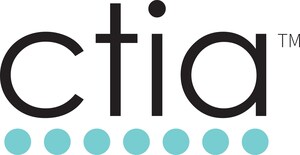WASHINGTON, July 19, 2019 /PRNewswire/ -- CTIA, the wireless industry association, today released updates to its Messaging Principles and Best Practices designed to further protect consumers and the text-messaging platform from fraud, spam and other abuses. The updates clarify that organizations should obtain opt-in consent before sending text messages to consumers. Consumers texting friends and families are not affected by the update and will continue to get messages they choose to receive from companies, non-profits, campaigns and other organizations.
"Text messaging is one of the fastest, easiest and most trusted ways to communicate," said Nick Ludlum, CTIA SVP and Chief Communications Officer. "As businesses, non-profits and other organizations increasingly rely on messaging to interact with consumers, it's absolutely critical that we protect consumers from spam, and maintain the integrity of the platform for all users."
Text messaging is one of the most trusted and widely used forms of communication. Americans send 63,000 text messages per second. CTIA's Messaging Principles and Best Practices set expectations among wireless ecosystem stakeholders to protect consumers from unwanted messages. Consistent with these principles and best practices, wireless providers use advanced tools and analytics to protect the platform and consumers from unwanted messages. Today, only three percent of text messages are spam and 93 percent of Americans view messaging as a trusted form of communication.
The first version of the best practices was published in January 2017, consistent with previous industry messaging guidelines, and is designed to support a robust and dynamic wireless messaging community and help stop text messaging spam. The updates reflect new messaging tools that allow businesses, non-profits, political campaigns and other organizations to send large volumes of text messages to consumers using platforms that historically have just been used by friends and family to communicate with each other.
The new updates clarify that any organization sending text messages to consumers should receive clear, opt-in consent. Messages from organizations that have not obtained opt-in consent may be subject to protection measures that could delay or block unwanted messages. A recent survey showed that more than 4 in 5 adults believe wireless providers should require organizations to obtain opt-in consent before sending them messages. The best practices also include steps and recommendations that organizations should use to avoid messages being caught in spam filters and other platform protections.
SOURCE CTIA

WANT YOUR COMPANY'S NEWS FEATURED ON PRNEWSWIRE.COM?
Newsrooms &
Influencers
Digital Media
Outlets
Journalists
Opted In



Share this article